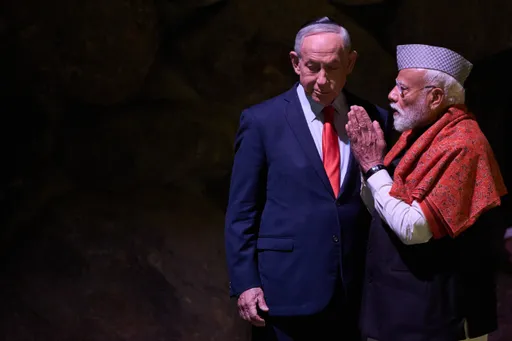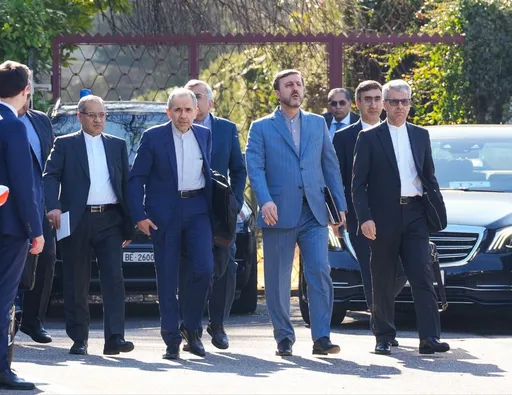Tens of thousands of civilians have fled the southern Gaza city of Rafah ahead of a threatened Israeli ground offensive, as Palestinians mark the anniversary of their "Nakba" or "catastrophe" of 1948.
On the eve of the "Nakba" commemoration on Wednesday, thousands of people took part in an annual march that took them through the ruins of villages that Palestinians were expelled from during the 1948 Arab-Israeli war.
Eyes glistening with tears, Abdul Rahman al Sabah, 88, recalled how members of the Haganah, a Zionist paramilitary group, forced his family from al Kassayer and "blew up our village".
During the war that accompanied Israel's creation, around 760,000 Palestinians fled or were forcibly driven from their homes and many took refuge in what would later become Gaza and the occupied West Bank.
Now, Israeli attacks have displaced nearly 450,000 Palestinians from Rafah since May 6, and around 100,000 from northern Gaza, UN agencies said.
That means around a quarter of Gaza's population of 2.4 million people have been displaced again in about one week.
UN chief Antonio Guterres repeated his call for a humanitarian ceasefire to allow more aid into the besieged territory.
"I reiterate my appeal for an immediate humanitarian ceasefire in Gaza and for the release of all hostages. I call for the Rafah crossing to be re-opened immediately and for the unimpeded humanitarian access throughout Gaza," he posted Tuesday on social media site X.
Humanitarian crisis
Israel's war and siege have triggered a humanitarian crisis in Gaza, with the UN repeatedly lamenting aid restrictions as famine stalks the north.
Since Israeli troops moved into eastern Rafah, the aid crossing point from Egypt has remained closed and the nearby Karem Abu Salem crossing lacks "safe and logistically viable access", a UN report said late Monday.
Qatar, which has been mediating peace talks, said Palestinians "have not received any aid" since May 9.
In addition, illegal Israeli settlers ransacked at least seven Gaza-bound aid trucks coming from Jordan, leaving food spilt on the road.
Both the United States, which called it "a total outrage", and Britain, said they would raise concerns about the incident with Israel's government.
EU foreign policy chief Josep Borrell called on Israeli authorities to stop the attacks and hold those responsible to account.
"I'm outraged by the repeated & still unchecked attacks perpetrated by Israeli extremists on aid convoys on their way to Gaza, including from Jordan. Hundreds of thousands of civilians are starving," Borrell posted on X late Tuesday.
Meanwhile, heavy Israeli bombardments have been reported around Rafah as well as in Gaza City and Jabalia refugee camp in the north, and Nuseirat camp in the centre.























